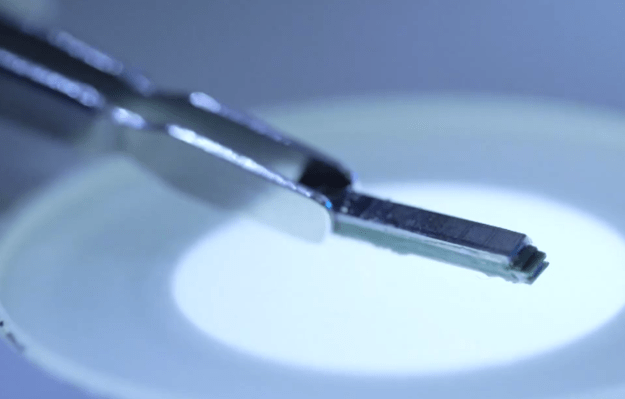I thought it was impressive that Withings now offers an affordable home scale that tracks your body fat percentage and heart rate, but scientists have developed a tiny Bluetooth-capable blood monitoring device that resides comfortably under the skin, according to the BBC this morning. It’s likely to go into testing with intensive care patients soon, but it’s an example of how intense home health monitoring could get over the course of the next few years.
The device was created by a team of Swiss medical scientists, and is designed to be installed (that really is the most appropriate term here) in a patient’s abdomen, leg or arm skin, using only a needle. It can last for months, and reports back information about blood glucose and cholesterol levels, so as you might imagine it would be extremely useful for patients with chronic conditions like diabetes who are used to having to draw blood on a much more regular basis.
It’s not a new idea, but the Swiss team’s design is unique in that it can track a number of different markers at once. In other words, it’s the ultimately quantified self device for real internal cues. The immediate benefit of this tech is obviously for those with serious conditions, and that’s likely who will see the benefits in the immediate future. The team hopes to have it generally available to patients in need within the next four years.

But beyond that, it’s easy to see similar unobtrusive sub-dermal implants gaining traction with the growing number of people who seem to want to keep close tabs on their bodies and health. Cholesterol levels and other indicators that can be found by this type of close monitoring will also probably become even more interesting to current advocates of the Quantified Self movement as the population ages.
It may seem far-fetched to imagine a future where the general desire to know and track more information about ourselves in real-time extends to devices we wear beneath the skin, but ten years ago who could’ve predicted the rise of successful startups like Withings who have built a brand on home health tracking, or the advent of a device like the Basis wristband? Devices like this one might just be the next wave of health monitoring tech ripe for consumerization.
